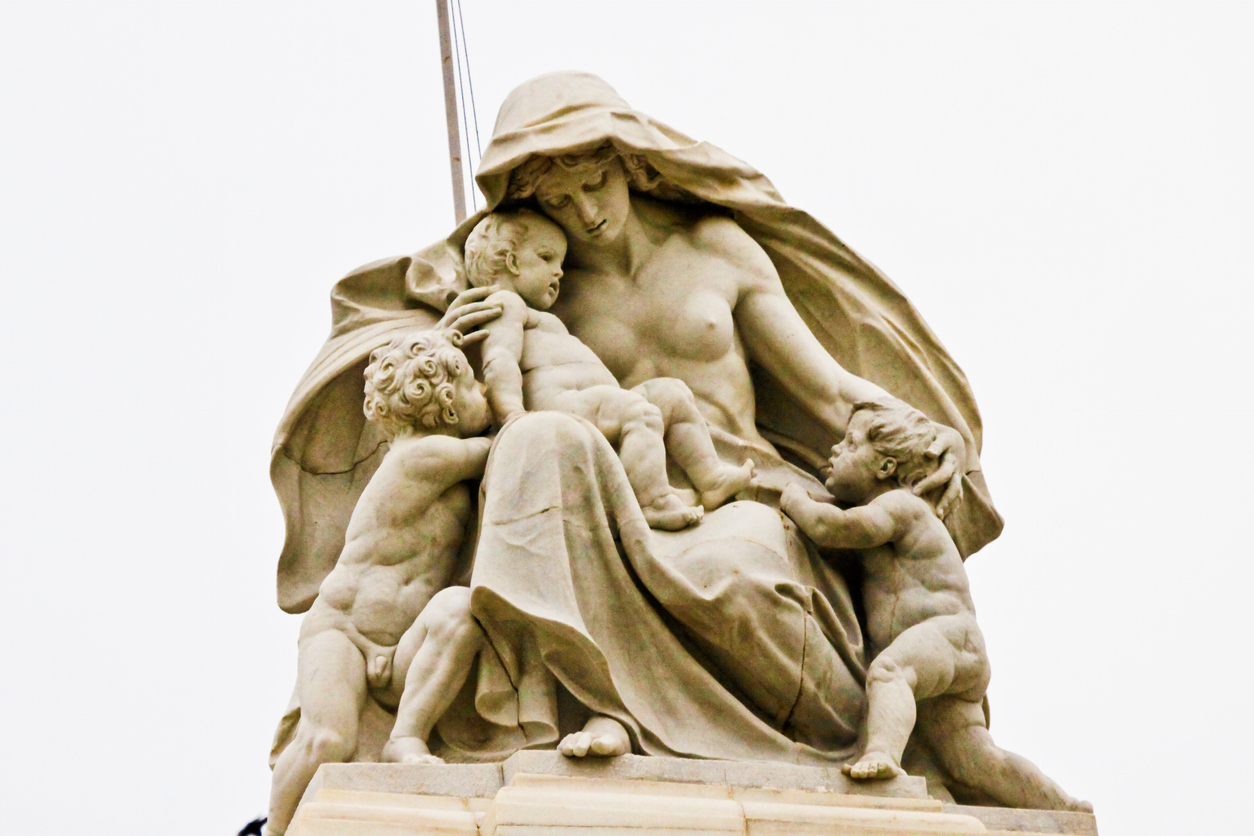As we come to the close of Women’s History Month, we have remembered and celebrated women who have broken barriers and made contributions in many areas in our society.
But where does motherhood fit among the contributions to be honored?
Motherhood should be among the first professions and accomplishments to be recognized. Your immediate thought might be, “We celebrate and recognize mothers on Mother’s Day.”
We do.
But how is that typically done?
It is primarily done on a personal level, thanking and honoring the women who have directly impacted our lives. What about the far-reaching importance of the role of mothers beyond us and members of our immediate families?
Mothers in carrying out the responsibility of motherhood reach and impact defining aspects of society. That impact should be recognized and celebrated before and beyond Mother’s Day.
There have been remarkable mothers who also made great historical contributions to society. But while their contributions have been celebrated, they have been unsung heroes when it comes to recognizing they also excelled in motherhood.
We can look to history and today for examples of the contributions those remarkable women made who were and are also mothers.
Arguably, motherhood has always been one of the toughest jobs on earth.
In many respects, in spite of all of our advancement, the job of motherhood has gotten tougher and deserves our ongoing acknowledgement and recognition of its rightful place among careers and professions.
Mothers — those who choose the role or accept the role thrust upon them — so often carry the burden of being the glue that keeps it all together whether it is a traditional family, a hybrid or extended family.
In recent years, more and more women are choosing to be stay-at-home moms for any number of reasons. At the end of 2023 nearly 25% of mothers identified as stay-at-home moms.
Where do stay-at-home moms fit on the career scale and to be recognized as an honorable profession?
In addition to assuming the responsibilities of nurturing another human being into becoming one with good values, a good sense of self, and compassion and concern for one’s neighbor, one’s community, and the betterment of mankind, motherhood also requires confronting other issues and forces that could impede carrying out those responsibilities.
Mothers who hope to achieve good outcomes for their children face some ominous challenges from infancy to young adulthood.
Those challenges could range from lack of understanding and respect for what is required of motherhood to fighting for the policies and resources that are needed to be successful — within the home and workplace.
Mothers are among those who fight for adequate prenatal care, safe childbirth, quality childcare and paid family leave to name a few.
Between infancy and adulthood, the job of motherhood is never ending.
Where there exist good conditions and good options for children, there are just as many negative ones lurking nearby.
Good and bad influences exist from the playgrounds to what is brought into the family room by television, the Internet and social media. This is occurring in higher degrees and multiple doses.
With all of the good educational choices on television and the internet that are good for children and adults, there are equally, if not more bad choices, which include blatant profanity, unprecedented nudity and sex, the specter of guns and acts of wanton violence perpetrated by crazed adults and children alike — all for children to hear and see.
Mothers use to only worry about untimely exposure to things like sex, drugs at school or in the neighborhood.
One is forced to ask, what are we doing as a society to support the efforts of motherhood?
Motherhood, like any other career or profession, cannot be successful in a vacuum. Support means more than making sure children are physically fed, clothed and housed.
What responsibility do we share to do things that reinforce exposing and cultivating good values in children, strong work ethics, and respect for another person, one’s community and the sanctity of human life?
Our mothers and grandmothers knew that. And they shared the responsibility in rearing not only their children, but also their neighbor’s children. Back then, there may not have been much in the way of technology, but reinforcement and respect for the job of rearing children abounded.
Motherhood today and through the ages have involved more than child rearing.
Mothers have been in the forefront of fighting to improve many societal conditions, and have led the charge to achieve respect and equality for women throughout history, and even more so today.
These mothers have led and are leading the fight in many areas of public policy affecting all citizens like access to healthcare, a quality education, reducing poverty and homelessness, as well as issues important to women like equal pay, reproductive rights and women maintaining control of their bodies.
But fighting for those issues has inadvertently sublimated and minimized the importance and contributions motherhood has played.
Honoring and appreciating motherhood, in all its complexity, its beauty, its pain, its challenges and its fulfillment, should not only be recognized during Women’s History month but be an ongoing affair because the career of motherhood never ends for those who truly accept the responsibility.
That responsibility reaches beyond the confines of the home.
The role of motherhood impacts all of society — the breadth and depth it has played in women’s history, in many ways, is immeasurable.
Where would women’s history and societal history be without motherhood?
Our stories may be republished online or in print under Creative Commons license CC BY-NC-ND 4.0. We ask that you edit only for style or to shorten, provide proper attribution and link to our website. AP and Getty images may not be republished. Please see our republishing guidelines for use of any other photos and graphics.






Janice Ellis